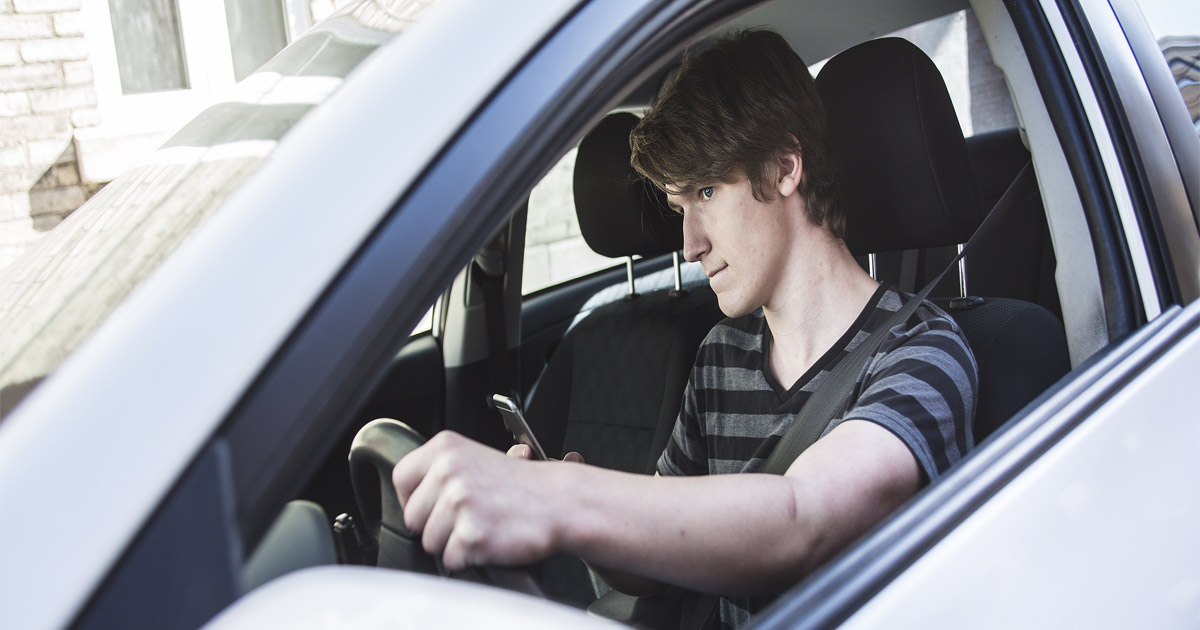Passengers are one of the most significant distractions for teen drivers. This group already has the highest crash risk of any age group, and just one peer passenger in the car doubles the risk of a teen driver crashing. Two or more teen passengers triple the chances of crashing. This may be because peer passengers can encourage risky behaviors such as speeding or driving aggressively in addition to distracting the driver.
In the United States, motor vehicle crashes are the leading cause of death for teenagers. Many teens underestimate or fail to identify risks because of a lack of experience behind the wheel. Speeding, tailgating, and driving under the influence of alcohol or drugs are common mistakes teens make when carrying passengers. Graduated driver licensing (GDL) systems have been introduced in all U.S. states and the District of Columbia to help new drivers gain driving skills and experience under lower-risk conditions. GDL systems vary from state to state, but in most cases, new teen drivers are not allowed to carry passengers until after they have gained a certain amount of experience.
Preventing Teen Crashes
Most teen car accidents are preventable, and there are many steps parents and caregivers can take to keep teen drivers and their friends safe. The CDC has identified eight danger zones that parents and teens should know. Never assume that because your teen had a driver’s education class, they have learned everything. The knowledge they acquire needs constant reinforcement from adult role models. Review the following eight danger zones with your teen to help prevent them from being involved in an accident:
- Driver inexperience: Practice together as much as possible in different weather and traffic conditions, times of day, and on various roads.
- Driving with other teen or young adult passengers: A newly licensed teen should have no teen passengers for the first six months. This is often a GDL system requirement. If this is not the case, set a limit of just one teen passenger.
- Nighttime driving: Teen fatal crashes are highest at night. Practice nighttime driving with your teen as much as possible and restrict their nighttime driving for at least six months after they get their license.
- Seat belt use: Many teen fatalities result from not using seat belts. Using a seat belt reduces a teen’s risk of dying or serious injury by about half, so make sure your teen knows to wear a seat belt, whether the driver or a passenger.
- Distracted driving: New teen drivers should not be eating, texting, making phone calls, or playing with the radio while operating a vehicle.
- Drowsy driving: Teens are notoriously sleep deprived and are most at risk for drowsy driving early in the morning and late at night. Monitor your teen’s sleep to ensure they are well-rested before getting behind the wheel.
- Reckless driving: Speeding and tailgating are reckless actions that cause accidents. Remind your teen to obey speed limits and leave adequate following distance to the vehicle ahead.
- Impaired driving: Inexperienced teen drivers increase their risk of an accident with even small amounts of alcohol. Many over-the-counter, prescription, or illicit drugs can also impair a teen’s driving ability.
After reviewing these danger zones together, the greatest thing parents can do for teen safety is set a good example by modeling safe driving behaviors. Teens absorb what they see, and experience and are more likely to remember safety tips if they see them demonstrated every day.
Monmouth County Car Accident Lawyers at Mikita & Roccanova Advocate for Injured Car Accident Victims
If you have been injured in a car accident caused by the negligence of another party, you may be eligible for compensation. Contact Mikita & Roccanova to schedule a free initial consultation with one of our experienced Monmouth County car accident lawyers who can help determine your best legal options. Call 725-705-3363 today or complete our online form. With offices in Hazlet and Highland Park, New Jersey, we represent clients in Ocean County, Sussex County, Neptune, Middlesex County, and Pennsylvania.


